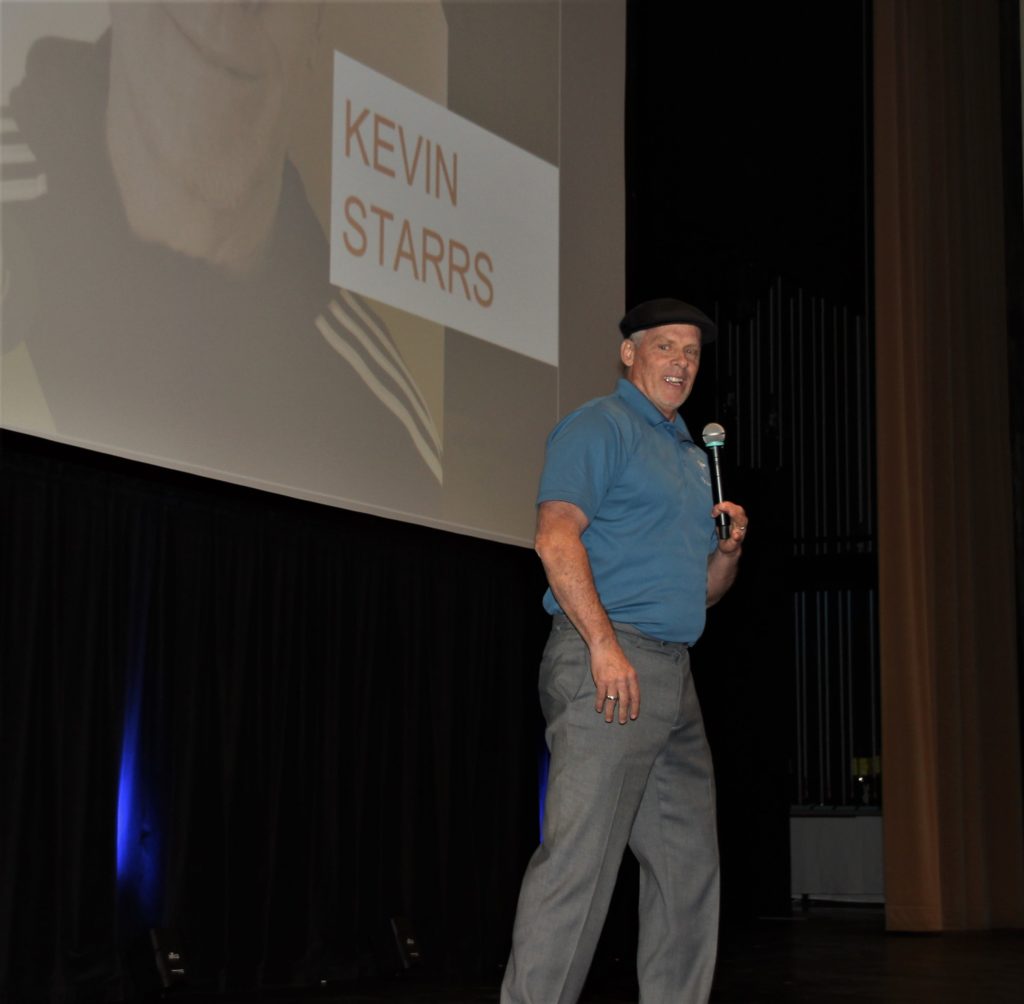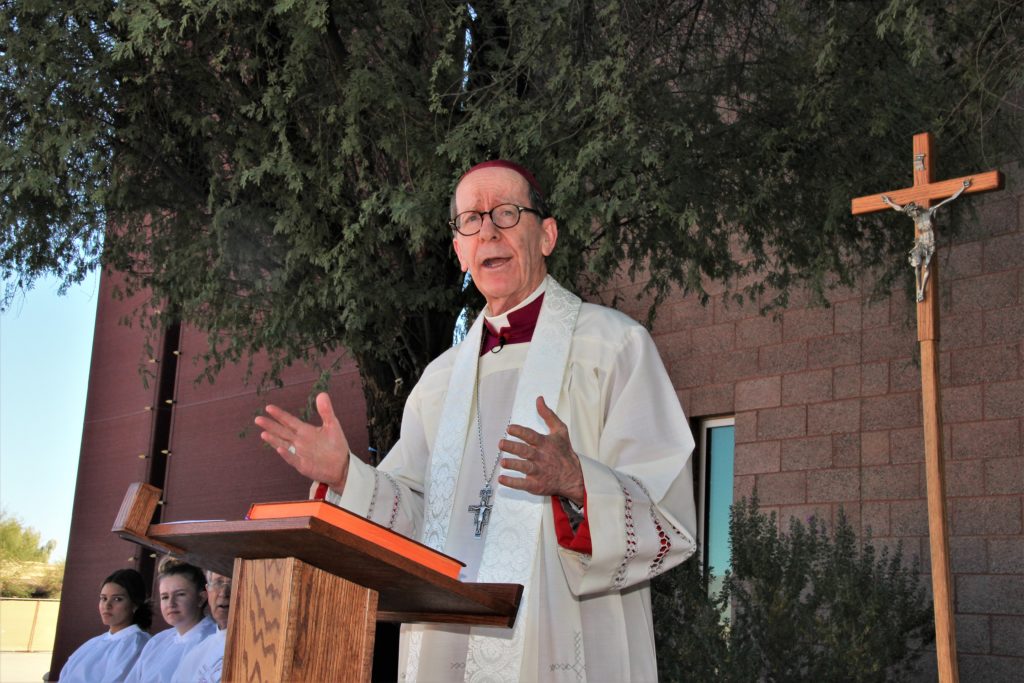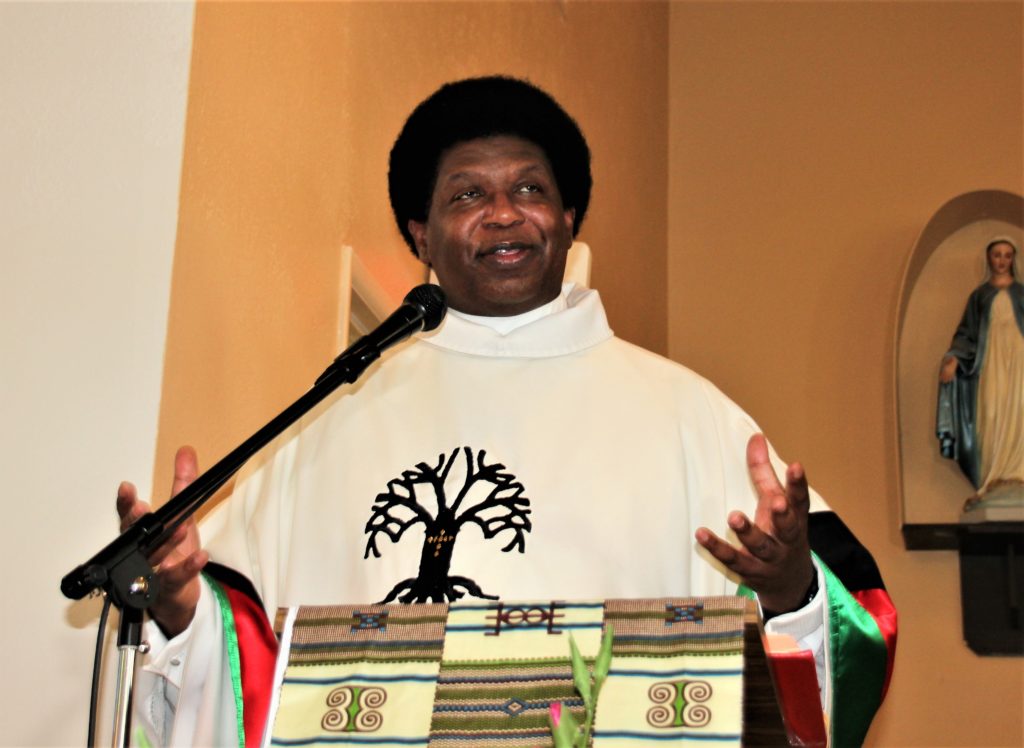By Jeff Grant, The Catholic Sun
Stretching across the pine-brush and open grasslands about 50 miles south of the Grand Canyon are 40 acres of land where a visitor can gaze for miles at the blue sky and hear the soft breezes blowing across the countryside, the San Francisco Peaks in the background.
It is in this bucolic Southwest setting that the Diocese of Phoenix hopes men overcome by the ravages of substance abuse and other addictions will come to heal and reclaim their lives.
“Sometimes, people need to get away to clear their mind and body,” explained Kevin Starrs, leader of the Diocese’s Prison Ministry and the plan’s guiding force.
“That’s why going out of the city is part of it. It is about 2 miles off dirt road, mountain desert with a view of the Peaks.”
The setting also helps facilitate what Starrs likes to refer to as getting into one’s daily prayer closet, where the individual can soak in God’s Word and listen to the Holy Spirit.

There is much to be done before the rehab center becomes reality, including fundraising, government approval, planning and construction.
But some of the basics are in place.
The Diocese owns the property, and Starrs said the use has been cleared by the Office of Buildings and Properties.
Starrs and his colleagues have established a nonprofit 501©3 corporation and created a website, kolbemission.com, where the public can read the basics.
The model for the facility comes from a center in Birmingham, Ala., where Starrs was led through conversations with Bishop Thomas J. Olmsted, who is enthusiastically behind the idea.
“It’s really badly needed. I totally support it,” the bishop said.

Serving since 1994 with the diocesan Office of Prison Ministry – whose primary mission is bringing the Gospel to the incarcerated throughout Arizona, Starrs has had desire to establish a rehab center based on Catholic teaching and practice where clients can overcome addiction to a variety of self-destructive behaviors, including drugs, alcohol, pornography, gambling and others. He began earnestly praying about it in 2018 with four colleagues, and soon afterward shared the idea with Bishop Olmsted.
The bishop was aware of several programs in the United States that used Catholic practices and teaching as part of recovery. He suggested Starrs visit one in Birmingham, Ala., that he had heard success stories about.
“He said, ‘Kevin, you need to get to Alabama as soon as possible. (and) within 3 weeks we were there. We loved what we saw,” Starrs said.
Men pray the rosary together, attend Mass, receive Communion, go to Confession, spend time in Adoration and pray – both with one another and alone. The men also share their fears, anxieties and challenges, as well as transgressions.
“They build real accountability and encouragement. It’s wonderful,” Bishop Olmsted said.
There is a community, Starrs added.
“They gather for lunch, work in agricultural fields, pray “Hail Mary(s)” on their way in. It’s the most beautiful thing I experienced.”
Starrs said the Arizona center will include all that as well as recreation and nonreligious activities. Men will take turns working the kitchen, baking bread, and have much time for conversation.
The facility will sleep 25, and include a chapel, kitchen and grotto, Starrs said.
The center will be named for St. Maximilian Kolbe, the patron saint of drug addicts, prisoners, families, journalists and the pro-life movement. Ordained a Franciscan in 1918, Kolbe and six other friars formed the Marian Franciscan movement known as The Immaculate. Kolbe served in Poland, where he was taken prisoner twice by the Nazis during World War II. Following his second arrest in 1941, he was held at Auschwitz, where he later asked to take the place of another inmate who had been sentenced to die. Kolbe was supposed to be starved to death, but when he continued to survive, the Germans executed him by lethal injection in August 1941.
He was canonized Oct. 10, 1982, by St. John Paul II, who called him, “the St. Francis of our times.”
At Kolbe Mission, Starrs, his colleagues and the Diocese envision men experiencing the love of Christ and the healing that can come only through the Gospel and participation in the Sacraments.
There will be no fee, and no requirement to be Catholic, but prior to acceptance, individuals must agree to take part in the center’s Catholic activities.
The facility would be an attractive option for those serving time, Bishop Olmsted said, adding that many prisoners have an addiction problem.
“So, to help prisoners get back on their feet, we need it, and to keep (others) from becoming prisoners because they have an addiction problem, we need it, too.”
Fr. Andrew McNair, spiritual adviser to the Prison Ministry, is praying the center becomes a reality.
“This is long overdue. I encounter people all the time struggling with addiction. I would love to recommend to them something Catholic,” he said.
“It brings with it Catholic spirituality — understanding that grace perfects nature; it perfects our humanity. In other programs, you are not going to get that vision of the human person.”

Kolbe will use what Bishop Olmsted described as “the strongest part of Catholic spirituality” to help addicts.
“It is men helping men and finding their strength through God,” he said.
Fr. McNair said the environment will help Kolbe’s residents focus on their task in a way that a secular institution does not.
“It builds a sense of community, centered around prayer. It reminds me of kind of a monastery. We abandon the world to focus on God and be renewed in God.”
It is often a lack of reliance on, or recognition of an all-knowing, all-loving and all-forgiving God that is at the heart of an “aggressive” secular environment where addiction flourishes, Fr. McNair pointed out.
“Overindulgence, excesses…so often people are encouraged to indulge themselves, it can be devastating. With no vision of a higher power, we are encouraged to center life around ourselves — you are the center of everything, but obviously that isn’t true,” he said.
The Diocese’s center will be unique among a wide and varied list of other rehab facilities across the state.
StartYourRecovery.org, an informational website on substance-use recovery, lists over 400 facilities or programs available here.
In Arizona and elsewhere, research suggests a strong need for these types of facilities.
A 2019 survey by the global analytics and advice firm Gallup found 46 percent of U.S. adults have dealt with substance-abuse problems in their family. Eighteen percent of those listed alcohol abuse; 10 percent drug abuse, and another 18 percent said their families experienced both.
Loneliness, anxiety, depression and other problems brought on by the COVID 19 pandemic have only worsened the problem.
The U.S. Centers for Disease Control reported that alcohol and drug overdoses have increased since the pandemic began in March 2020.
Starr hopes the Valle site will be one of many operated by Kolbe Mission, with some serving women.
“I would love to see 10-15 Kolbe Homes,” he said.








